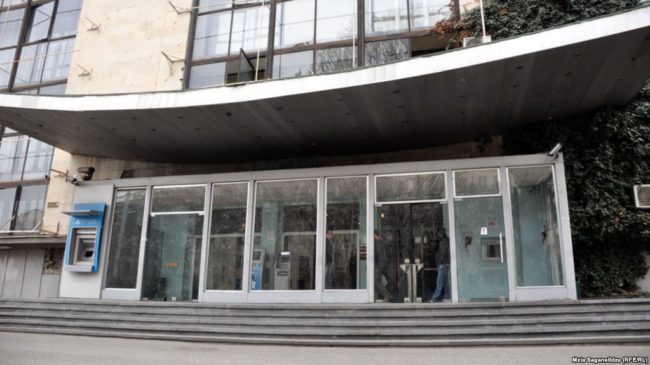

 A number of private TV companies and civil rights organisations in Georgia have urged Parliament not to pass a bill removing restrictions on commercial advertising on Georgia’s Public Broadcaster (GPB).
A number of private TV companies and civil rights organisations in Georgia have urged Parliament not to pass a bill removing restrictions on commercial advertising on Georgia’s Public Broadcaster (GPB).
The bill, developed by a working group under Parliament’s Legal Issues Committee, was put to parliament by 13 MPs on 22 June. The group was formed earlier in 2017 after several GPB employees in December 2016 put an initiative to Parliament urging them to create a working group to develop a bill to change Georgia’s law on broadcasting.
‘The working group did not include media professionals and other interested parties. There is no qualified expertise on what the changes would change for GPB and the media environment and the explanatory note cannot explain the necessity of the bill’, a group of 28 local TV broadcasters said in a statement on 6 July.
‘Commercial influence’
The broadcasters were especially concerned that the proposed changes ‘may put GPB under commercial influence’ and put regional TV stations at a disadvantage on the advertising market.
Rustavi 2, Tv Pirveli, Palitranews TV and other national and local broadcasters claimed that given the limited advertising market in the country, the changes would have a ‘negative impact on the sustainability of private broadcasters’, as GPB’s current annual funding, which comes from the central budget, ‘consistently exceeds half of the total sum of the sales market’. It also grants GPB the opportunity to become a ‘dishonest player on the market’ they say.
According to Georgia’s state budget plan, GPB will be allocated ₾46 million ($19 million) in 2017, up from ₾44 million In 2016 and ₾41 million in 2015.
Given that private broadcasters rely on advertising as their only source of revenue and do not receive public funding, ‘the main problems in GPB is not a lack of resources and the reasons for their problems should be sought elsewhere’, the companies said.
‘Ignoring the role of a public watchdog’
According to the statement, the proposed changes ‘ignore the role of the public broadcaster as a public watchdog’, as if the bill is passed, the Public Broadcaster will ‘lose its primary mission and become a commercial television station, free from public control’, they say.
Rights groups, such as Transparency International — Georgia, the Human Rights Education and Monitoring Centre, the Georgian Young Lawyers Association, and others, as well as independent media self-regulatory body the Charter of Journalistic Ethics, also raised concerns over the bill in a 19 June statement, claiming it would ‘significantly worsen the accountability and transparency standards of the Public Broadcaster’.
Read on OC Media: Concerns grow at cancellation of ‘critical’ shows at GPB
Parliament has not yet announced a date to debate the bill.







